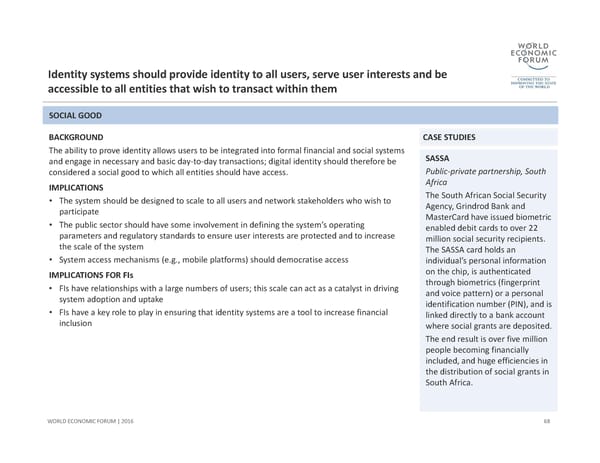Identity systems should provide identity to all users, serve user interests and be accessible to all entities that wish to transact within themBACKGROUND The ability to prove identity allows users to be integrated into formal financial and social systems and engage in necessary and basic day‐to‐day transactions; digital identity should therefore be considered a social good to which all entities should have access. IMPLICATIONS •The system should be designed to scale to all users and network stakeholders who wish to participate •The public sector should have some involvement in defining the system’s operating parameters and regulatory standards to ensure user interests are protected and to increase the scale of the system •System access mechanisms (e.g., mobile platforms) should democratise access IMPLICATIONS FOR FIs •FIs have relationships with a large numbers of users; this scale can act as a catalyst in driving system adoption and uptake •FIs have a key role to play in ensuring that identity systems are a tool to increase financial inclusion 68 SASSA Public‐private partnership, South Africa The South African Social Security Agency, Grindrod Bank and MasterCard have issued biometric enabled debit cards to over 22 million social security recipients. The SASSA card holds an individual’s personal information on the chip, is authenticated through biometrics (fingerprint and voice pattern) or a personal identification number (PIN), and is linked directly to a bank account where social grants are deposited. The end result is over five million people becoming financially included, and huge efficiencies in the distribution of social grants in South Africa. WORLD ECONOMIC FORUM | 2016SOCIAL GOOD CASE STUDIES
 A Blueprint for Digital Identity Page 68 Page 70
A Blueprint for Digital Identity Page 68 Page 70